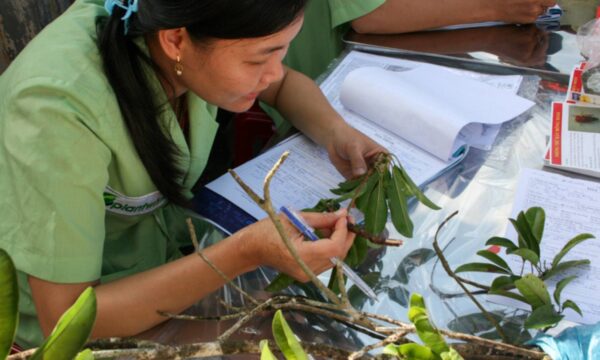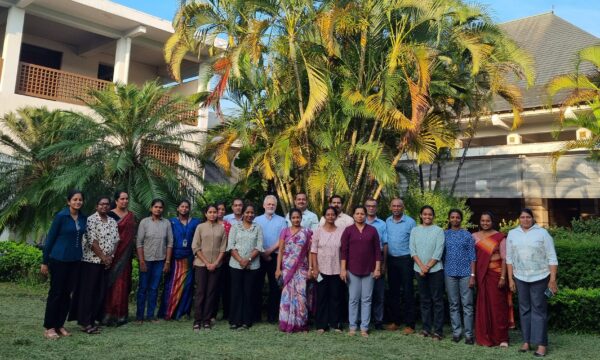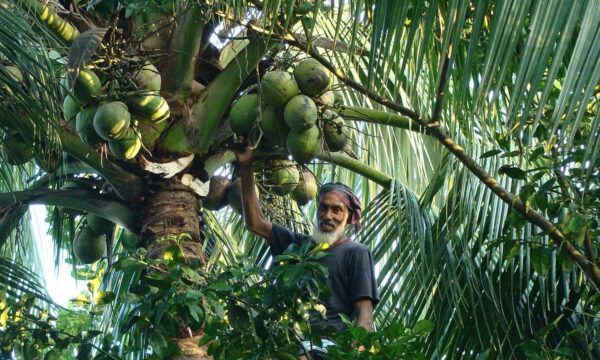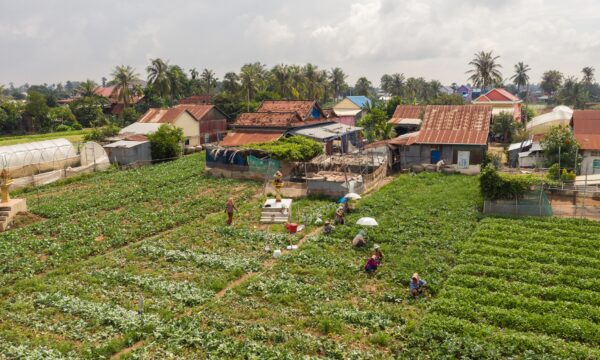A Pest Risk Analysis (PRA) allows National Plant Protection Organisations (NPPOs) to assess risks posed by pests or pathways of quarantine concern and identify options to manage those risks.
In early Jun, CABI, in collaboration with the National Institute of Plant Health Management (NIPHM), conducted a five-day regional workshop on PRA using CABI decision-support tools. The workshop aimed to bolster regional cooperation and enhance the capabilities of NPPOs in South Asia in managing risks from invasive pests.
The workshop was held at the NIPHM in Hyderabad, India. NIPHM assists the Indian government in increasing the efficiency of the existing pest and disease surveillance, control, certification, and accreditation systems. They do this through their core role as a training and adaptive research centre in the field of extension and policy developments related to plant protection.
Pest Risk Analysis Workshop attendees
CABI and NIPHM hosted the event, which was attended by around 25 participants. Participants included officials from NIPHM and CABI, as well as representatives from NPPOs in South Asian countries such as Sri Lanka, Bhutan, Bangladesh, Nepal, and India. Key trainers included CABI’s Dr. MaryLucy Oronje, Dr. Lucinda Charles and Dr. Manju Thakur, and NIPHM faculty members.

Pest Risk Analysis Workshop aims
The workshop’s rationale stemmed from the increasing movement of invasive species due to globalization and reduced tariff barriers. Invasive species pose significant risks to ecosystems and economies. PRA is crucial for evaluating these risks and determining necessary phytosanitary measures.
The workshop aimed to:
- – Familiarize participants with CABI decision support tools.
- – Increase awareness of PRA resources.
- – Develop criteria for prioritizing pests and pathways.
- – Explore regional approaches to PRA.
- – Gather feedback on CABI decision support tools.
- – The workshop sought to build a network of PRA professionals across South Asia, fostering regional collaboration and coordinated actions against common pest threats.
Key outcomes
The workshop combined presentations, discussions, and hands-on sessions using CABI digital tools. Participants practised pathway and pest-initiated PRAs. In addition, they visited NIPHM facilities for practical insights into plant quarantine, seed health testing, pesticide management, residue analysis, and biocontrol laboratories. The workshop concluded with a visit to the International Crop Research Institute for Semi-Arid Tropics (ICRISAT) plant quarantine, seed health laboratory, and insect museum.
Participants highlighted how the decision support tools simplify the PRA process and provide a systematic approach to the scientific work. The workshop is a step towards enhancing plant biosecurity in South Asia by building capacity and fostering collaboration. Moreover, the session equipped participants with the necessary tools and knowledge to manage and mitigate the risks posed by invasive pests effectively.

Next steps for CABI
Through its PlantwisePlus programme, CABI will continue supporting countries in the region in strengthening their phytosanitary capacities. Recognizing that invasive pests often transcend national borders, CABI and NIPHM emphasized a regional approach to pest risk assessment. Collaborative efforts led by CABI among neighbouring countries will enhance information sharing, cooperation, and coordinated actions against shared pest threats.
PlantwisePlus
PlantwisePlus gratefully acknowledges the financial support of the Directorate-General for International Cooperation (DGIS), Netherlands; European Commission Directorate General for International Partnerships (INTPA, EU); the Foreign, Commonwealth & Development Office (FCDO), United Kingdom; and the Swiss Agency for Development and Cooperation (SDC).
1 Comment
Leave a Reply
Related News & Blogs
How do pest risk registers address the spread of plant pests in Africa?
Pest risk registers can help to solve problems in agriculture, addressing the growing global threat of plant pests. Moreover, changing weather patterns, led by rising temperatures, are causing them to reproduce faster and expand into new regions. In ad…
10 July 2025





Prevention is better than cure.Analyzing pestelence is one way to curbing the menace in the long run.